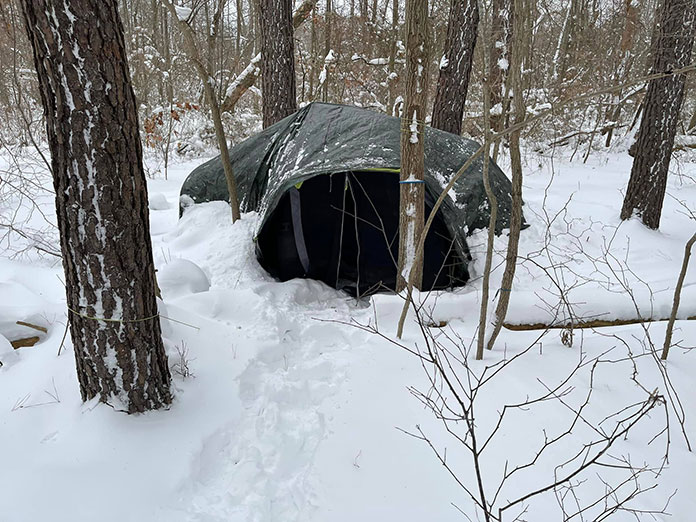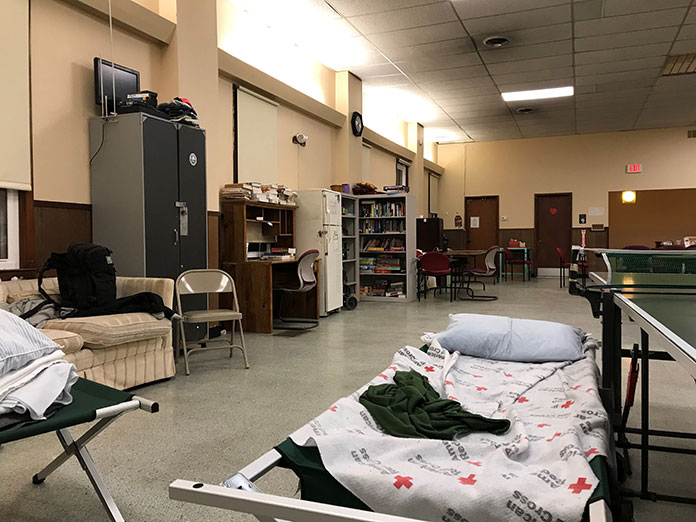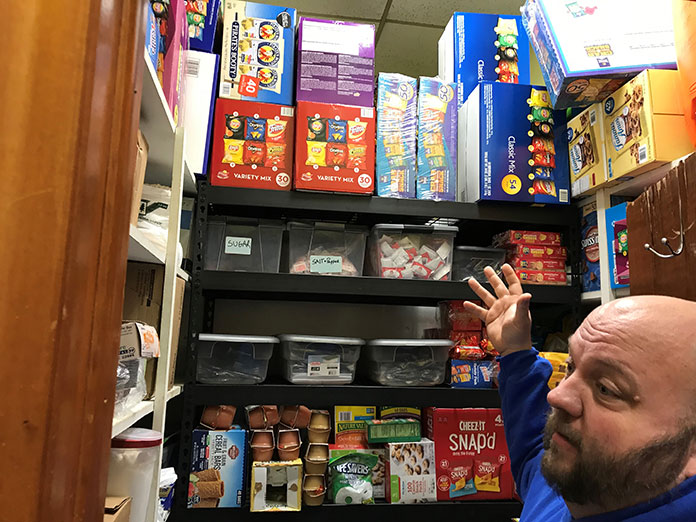
OCEAN COUNTY – It should be easy to reach out and help those who need it the most. Yet there are a lot of barriers that society has constructed that make it difficult to reach out.
Recently, there was a Point In Time count in which local homeless were surveyed so that they could be given the help they need.
The counts translate into how much money the area will get, however, the federal government has it a bit backwards, some said. Since the goal is to reduce the number of homeless, you are rewarded if your numbers go down. Essentially, you’re getting more money for fewer people. If your homeless count goes up, you are penalized, and you are given even less money to provide services to an even larger crowd.
The pandemic has required social distancing, which means that there are fewer people allowed in shelters. It’s also caused staffing levels to fall because volunteers and employees can’t come in if they are possibly contagious.
Everyone interviewed in relation to this issue says the same thing: the lack of truly affordable housing is the main problem. There are homes, but none within reach for the homeless.

Michele Vitiello, case coordinator for Village Resources, was on hand to try for housing solutions. The difficulty is that there are few truly affordable homes in Ocean County. Someone on Social Security is given $850 a month, and most rentals are more than a thousand.
“No one can live on $850 a month,” she said.
While the state requires towns to set aside a certain number of homes for people with low to moderate income, even those are often out of reach, she said.
“We need someone to build real low-income housing,” she said. “Ocean County needs more subsidized housing and smaller houses.”
Another challenge is that the U.S. Department of Housing and Urban Development doesn’t count you as homeless if you live on someone’s couch, said Kathryn Colhoun, Director of Community Resources and Advocacy, Ocean Partnership for Children. She organized the point in time count.
There were a lot of people in need, and she said there were more people in their 20s than in the past. If you’re fleeing domestic violence, you are homeless, she said. This is something that the general public doesn’t consider when discussing the issue of homelessness. However, with the stress of the pandemic, domestic violence has been on the rise. Shelters like Providence House and Dottie’s House are overflowing.

Evictions
There had been a moratorium on evictions throughout the beginning of the pandemic but it ended on January 1, 2022. Other programs were put in place to protect those in danger of losing their homes. However, they might not know about these protections, might not qualify for them, or be able to navigate the bureaucracy to get to the other end safely.
Therefore, there’s been more evictions in the area. This has created a strange, cyclical situation, volunteers said. First, people who were protected from eviction are now possibly homeless. Second, the evictions have opened up more low-cost housing available to place the homeless. Essentially, it means that the staff that work to house vulnerable people are working in circles that the system created.
If you are on Section 8, you are given $1,200, Colhoun said. It’s very difficult to find a place nearby for $1,200.
“Homeless service systems across the state have been strategically working to ensure that resources made available through the CARES Act and the American Rescue Plan have targeted households currently experiencing homelessness and households that are at risk of homelessness once the moratorium came to an end,” said Kasey Vienckowksi, Senior Associate with Monarch Housing Associates which directs NJCounts 2022. “This year’s count will be critical to help communities respond to the wave of households that will be in need as the courts continue to work through the backlog of eviction cases that have been pending since as early as March, 2020.”

How To Help
With the way the policies are, sometimes the best help comes from individuals.
Minister Steve Brigham takes care of people living in tents around the area. He shared a story recently on social media about spending a day helping folks and delivering propane tanks so they can keep warm. One woman was worried about an impending snowstorm and he was able to get her situated in a hotel.
He had received a call about three men that spent the night on a porch of a church in Lakewood. They were able to get into a hotel for a few nights as well.
An encampment in the woods had residents with some issues. A zipper in front of someone’s tent had frozen over. Another didn’t have anything to eat. He had a tarp and some food from the Lakewood Elks in his truck.
“It is always nice to think at the end of a day that possibly a few lives may have been saved because a group of concerned people cared enough to share some of their time, and resources,” he said, thanking donors.
If you would like to make a tax deductible financial donation to help Brigham’s efforts, you can send a check to Destiny’s Bridge, PO Box 692, Lakewood NJ 08701 or donate at PayPal: Destinysbridgefoundation@gmail.com.






